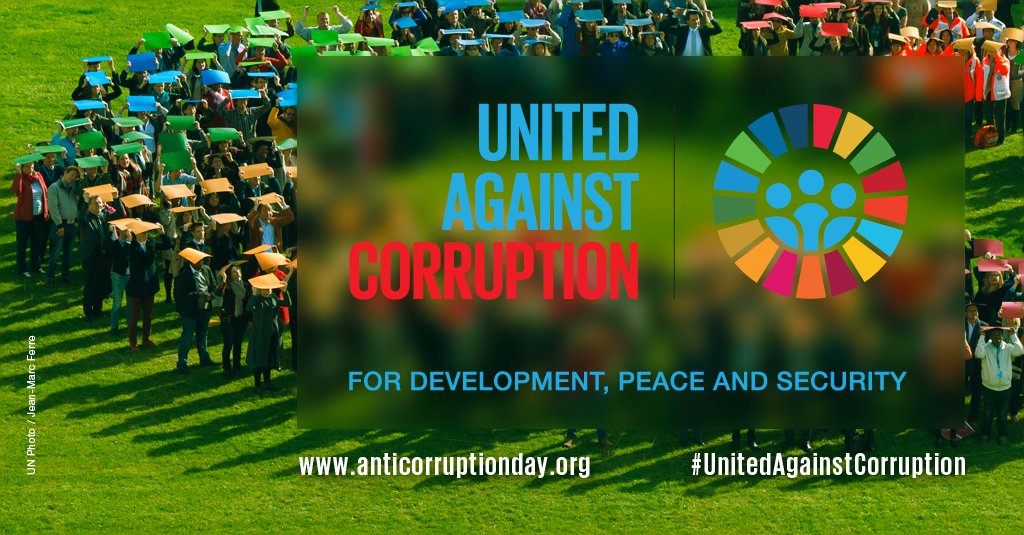The UN are marking 09th December 2019 as for International Anti-Corruption Day. Every year an estimated $2.6 trillion are stolen annually through corruption – a sum equivalent to more than 5 per cent of the global GDP. In developing countries, according to the United Nations Development Programme, funds lost to corruption are estimated at 10 times the amount of official development assistance. The UN note that corruption is a serious crime that can undermine social and economic development in all societies and no country, region or community is immune.
We are lucky enough to have Water Institute member Dr. Robert Gillanders, member of the EU Anti-Corruption Network, to guide us to the best resources on matters relating to water corruption. Corruption is rife in the water sector, damaging drinking supplies, sanitation, agriculture, energy and the environment. Corruption can waste huge amounts of money in these efforts – and for many people, having reliable access to clean water or not can simply be a matter of life and death.
Water management, such as dam projects and irrigation schemes are large, complex projects. As a result, corruption during procurement and contracting processes can be easy and profitable. Funds meant for managing water can be mismanaged by corrupt officials. Companies and agricultural firms can use bribes for preferential access to water, depriving those who need it. Water pollution can go unpunished if regulatory bodies can be bribed, blackmailed or threatened. This results in the spread of waterborne diseases. Informal water providers can extort the poor when they are the only source of drinking water. The result of water corruption is thirst and illness, with many people facing poverty or becoming unable to escape it.
Climate change piles pressure on already scarce water supplies, while conflict and competition over access to suitable water are becoming established problems. Thus, the need for sustainable water management more urgent than ever. Response is required at local and global levels.
Governments and international agencies must be pressed hard to strengthen water resource management and properly enforce them. This is not only required for future generations, but for our own. Water contracts must be awarded in a way that is completely accountable and all stakeholders in water resources must behave ethically.
A collaborative approach toward idea and solution sharing to reduce corruption risk is needed. It’s essential that we listen to those who are most affected by corruption. If communities can express their problems, the source of corruption can be identified and rooted out.
For more fantastic resources on anti-corruption, see this link.

